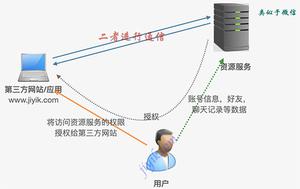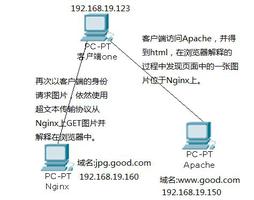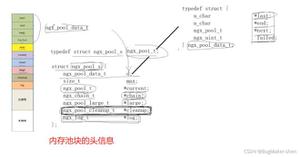SpringAop实现操作日志记录
前言
大家好,这里是经典鸡翅,今天给大家带来一篇基于SpringAop实现的操作日志记录的解决的方案。大家可能会说,切,操作日志记录这么简单的东西,老生常谈了。不!
网上的操作日志一般就是记录操作人,操作的描述,ip等。好一点的增加了修改的数据和执行时间。那么!我这篇有什么不同呢!今天这种不仅可以记录上方所说的一切,还增加记录了操作前的数据,错误的信息,堆栈信息等。正文开始~~~~~
思路介绍
记录操作日志的操作前数据是需要思考的重点。我们以修改场景来作为探讨。当我们要完全记录数据的流向的时候,我们必然要记录修改前的数据,而前台进行提交的时候,只有修改的数据,那么如何找到修改前的数据呢。有三个大的要素,我们需要知道修改前数据的表名,表的字段主键,表主键的值。这样通过这三个属性,我们可以很容易的拼出 select * from 表名 where 主键字段 = 主键值。我们就获得了修改前的数据,转换为json之后就可以存入到数据库中了。如何获取三个属性就是重中之重了。我们采取的方案是通过提交的映射实体,在实体上打上注解,根据 Java 的反射取到值。再进一步拼装获得对象数据。那么AOP是在哪里用的呢,我们需要在记录操作日志的方法上,打上注解,再通过切面获取到切点,一切的数据都通过反射来进行获得。
定义操作日志注解
既然是基于spinrg的aop实现切面。那么必然是需要一个自定义注解的。用来作为切点。我们定义的注解,可以带一些必要的属性,例如操作的描述,操作的类型。操作的类型需要说一下,我们分为新增、修改、删除、查询。那么只有修改和删除的时候,我们需要查询一下修改前的数据。其他两种是不需要的,这个也可以用来作为判断。
@Target({ElementType.METHOD})
@Retention(RetentionPolicy.RUNTIME)
@Documented
public @interface OperateLog {
String operation() default "";
String operateType() default "";
}
定义用于找到表和表主键的注解
表和表主键的注解打在实体上,内部有两个属性 tableName 和 idName。这两个属性的值获得后,可以进行拼接 select * from 表名 where 主键字段。
@Target({ElementType.TYPE})
@Retention(RetentionPolicy.RUNTIME)
@Documented
public @interface SelectTable {
String tableName() default "";
String idName() default "";
}
定义获取主键值的注解
根据上面所说的三个元素,我们还缺最后一个元素主键值的获取,用于告诉我们,我们应该从提交的请求的那个字段,拿到其中的值。
@Target({ElementType.FIELD})
@Retention(RetentionPolicy.RUNTIME)
@Documented
public @interface SelectPrimaryKey {
}
注解的总结
有了上面的三个注解,注解的准备工作已经进行完毕。我们通过反射取到数据,可以获得一切。接下来开始实现切面,对于注解的值进行拼接处理,最终存入到我们的数据库操作日志表中。
切面的实现
对于切面来说,我们需要实现切点、数据库的插入、反射的数据获取。我们先分开进行解释,最后给出全面的实现代码。方便大家的理解和学习。
切面的定义
基于spring的aspect进行声明这是一个切面。
@Aspect
@Component
public class OperateLogAspect {
}
切点的定义
切点就是对所有的打上OperateLog的注解的请求进行拦截和加强。我们使用annotation进行拦截。
@Pointcut("@annotation(com.jichi.aop.operateLog.OperateLog)")
private void operateLogPointCut(){
}
获取请求ip的共用方法
private String getIp(HttpServletRequest request){
String ip = request.getHeader("X-forwarded-for");
if (ip == null || ip.length() == 0 || "unknown".equalsIgnoreCase(ip)) {
ip = request.getHeader("Proxy-Client-IP");
}
if (ip == null || ip.length() == 0 || "unknown".equalsIgnoreCase(ip)) {
ip = request.getHeader("WL-Proxy-Client-IP");
}
if (ip == null || ip.length() == 0 || "unknown".equalsIgnoreCase(ip)) {
ip = request.getHeader("HTTP_CLIENT_IP");
}
if (ip == null || ip.length() == 0 || "unknown".equalsIgnoreCase(ip)) {
ip = request.getHeader("HTTP_X_FORWARDED_FOR");
}
if (ip == null || ip.length() == 0 || "unknown".equalsIgnoreCase(ip)) {
ip = request.getRemoteAddr();
}
return ip;
}
数据库的日志插入操作
我们将插入数据库的日志操作进行单独的抽取。
private void insertIntoLogTable(OperateLogInfo operateLogInfo){
operateLogInfo.setId(UUID.randomUUID().toString().replace("-",""));
String sql="insert into log values(?,?,?,?,?,?,?,?,?,?,?,?,?,?,?)";
jdbcTemplate.update(sql,operateLogInfo.getId(),operateLogInfo.getUserId(),
operateLogInfo.getUserName(),operateLogInfo.getOperation(),operateLogInfo.getMethod(),
operateLogInfo.getModifiedData(),operateLogInfo.getPreModifiedData(),
operateLogInfo.getResult(),operateLogInfo.getErrorMessage(),operateLogInfo.getErrorStackTrace(),
operateLogInfo.getExecuteTime(),operateLogInfo.getDuration(),operateLogInfo.getIp(),
operateLogInfo.getModule(),operateLogInfo.getOperateType());
}
环绕通知的实现
日志的实体类实现
@TableName("operate_log")
@Data
public class OperateLogInfo {
//主键id
@TableId
private String id;
//操作人id
private String userId;
//操作人名称
private String userName;
//操作内容
private String operation;
//操作方法名称
private String method;
//操作后的数据
private String modifiedData;
//操作前数据
private String preModifiedData;
//操作是否成功
private String result;
//报错信息
private String errorMessage;
//报错堆栈信息
private String errorStackTrace;
//开始执行时间
private Date executeTime;
//执行持续时间
private Long duration;
//ip
private String ip;
//操作类型
private String operateType;
}
准备工作全部完成。接下来的重点是对环绕通知的实现。思路分为数据处理、异常捕获、finally执行数据库插入操作。环绕通知的重点类就是ProceedingJoinPoint ,我们通过它的getSignature方法可以获取到打在方法上注解的值。例如下方。
MethodSignature signature = (MethodSignature) pjp.getSignature();
OperateLog declaredAnnotation = signature.getMethod().getDeclaredAnnotation(OperateLog.class);
operateLogInfo.setOperation(declaredAnnotation.operation());
operateLogInfo.setModule(declaredAnnotation.module());
operateLogInfo.setOperateType(declaredAnnotation.operateType());
//获取执行的方法
String method = signature.getDeclaringType().getName() + "." + signature.getName();
operateLogInfo.setMethod(method);
String operateType = declaredAnnotation.operateType();
获取请求的数据,也是通过这个类来实现,这里有一点是需要注意的,就是我们要约定参数的传递必须是第一个参数。这样才能保证我们取到的数据是提交的数据。
if(pjp.getArgs().length>0){
Object args = pjp.getArgs()[0];
operateLogInfo.setModifiedData(new Gson().toJson(args));
}
接下来的一步就是对修改前的数据进行拼接。之前我们提到过如果是修改和删除,我们才会进行数据的拼接获取,主要是通过类来判断书否存在注解,如果存在注解,那么就要判断注解上的值是否是控制或者,非空才能正确的进行拼接。取field的值的时候,要注意私有的变量需要通过setAccessible(true)才可以进行访问。
if(GlobalStaticParas.OPERATE_MOD.equals(operateType) ||
GlobalStaticParas.OPERATE_DELETE.equals(operateType)){
String tableName = "";
String idName = "";
String selectPrimaryKey = "";
if(pjp.getArgs().length>0){
Object args = pjp.getArgs()[0];
//获取操作前的数据
boolean selectTableFlag = args.getClass().isAnnotationPresent(SelectTable.class);
if(selectTableFlag){
tableName = args.getClass().getAnnotation(SelectTable.class).tableName();
idName = args.getClass().getAnnotation(SelectTable.class).idName();
}else {
throw new RuntimeException("操作日志类型为修改或删除,实体类必须指定表面和主键注解!");
}
Field[] fields = args.getClass().getDeclaredFields();
Field[] fieldsCopy = fields;
boolean isFindField = false;
int fieldLength = fields.length;
for(int i = 0; i < fieldLength; ++i) {
Field field = fieldsCopy[i];
boolean hasPrimaryField = field.isAnnotationPresent(SelectPrimaryKey.class);
if (hasPrimaryField) {
isFindField = true;
field.setAccessible(true);
selectPrimaryKey = (String)field.get(args);
}
}
if(!isFindField){
throw new RuntimeException("实体类必须指定主键属性!");
}
}
if(StringUtils.isNotEmpty(tableName) &&
StringUtils.isNotEmpty(idName)&&
StringUtils.isNotEmpty(selectPrimaryKey)){
StringBuffer sb = new StringBuffer();
sb.append(" select * from ");
sb.append(tableName);
sb.append(" where ");
sb.append(idName);
sb.append(" = ? ");
String sql = sb.toString();
try{
List<Map<String, Object>> maps = jdbcTemplate.queryForList(sql, selectPrimaryKey);
if(maps!=null){
operateLogInfo.setPreModifiedData(new Gson().toJson(maps));
}
}catch (Exception e){
e.printStackTrace();
throw new RuntimeException("查询操作前数据出错!");
}
}else {
throw new RuntimeException("表名、主键名或主键值 存在空值情况,请核实!");
}
}else{
operateLogInfo.setPreModifiedData("");
}
切面的完整实现代码
@Aspect
@Component
public class OperateLogAspect {
@Autowired
private JdbcTemplate jdbcTemplate;
@Pointcut("@annotation(com.jichi.aop.operateLog.OperateLog)")
private void operateLogPointCut(){
}
@Around("operateLogPointCut()")
public Object around(ProceedingJoinPoint pjp) throws Throwable {
Object responseObj = null;
OperateLogInfo operateLogInfo = new OperateLogInfo();
String flag = "success";
try{
HttpServletRequest request = SpringContextUtil.getHttpServletRequest();
DomainUserDetails currentUser = SecurityUtils.getCurrentUser();
if(currentUser!=null){
operateLogInfo.setUserId(currentUser.getId());
operateLogInfo.setUserName(currentUser.getUsername());
}
MethodSignature signature = (MethodSignature) pjp.getSignature();
OperateLog declaredAnnotation = signature.getMethod().getDeclaredAnnotation(OperateLog.class);
operateLogInfo.setOperation(declaredAnnotation.operation());
operateLogInfo.setModule(declaredAnnotation.module());
operateLogInfo.setOperateType(declaredAnnotation.operateType());
//获取执行的方法
String method = signature.getDeclaringType().getName() + "." + signature.getName();
operateLogInfo.setMethod(method);
String operateType = declaredAnnotation.operateType();
if(pjp.getArgs().length>0){
Object args = pjp.getArgs()[0];
operateLogInfo.setModifiedData(new Gson().toJson(args));
}
if(GlobalStaticParas.OPERATE_MOD.equals(operateType) ||
GlobalStaticParas.OPERATE_DELETE.equals(operateType)){
String tableName = "";
String idName = "";
String selectPrimaryKey = "";
if(pjp.getArgs().length>0){
Object args = pjp.getArgs()[0];
//获取操作前的数据
boolean selectTableFlag = args.getClass().isAnnotationPresent(SelectTable.class);
if(selectTableFlag){
tableName = args.getClass().getAnnotation(SelectTable.class).tableName();
idName = args.getClass().getAnnotation(SelectTable.class).idName();
}else {
throw new RuntimeException("操作日志类型为修改或删除,实体类必须指定表面和主键注解!");
}
Field[] fields = args.getClass().getDeclaredFields();
Field[] fieldsCopy = fields;
boolean isFindField = false;
int fieldLength = fields.length;
for(int i = 0; i < fieldLength; ++i) {
Field field = fieldsCopy[i];
boolean hasPrimaryField = field.isAnnotationPresent(SelectPrimaryKey.class);
if (hasPrimaryField) {
isFindField = true;
field.setAccessible(true);
selectPrimaryKey = (String)field.get(args);
}
}
if(!isFindField){
throw new RuntimeException("实体类必须指定主键属性!");
}
}
if(StringUtils.isNotEmpty(tableName) &&
StringUtils.isNotEmpty(idName)&&
StringUtils.isNotEmpty(selectPrimaryKey)){
StringBuffer sb = new StringBuffer();
sb.append(" select * from ");
sb.append(tableName);
sb.append(" where ");
sb.append(idName);
sb.append(" = ? ");
String sql = sb.toString();
try{
List<Map<String, Object>> maps = jdbcTemplate.queryForList(sql, selectPrimaryKey);
if(maps!=null){
operateLogInfo.setPreModifiedData(new Gson().toJson(maps));
}
}catch (Exception e){
e.printStackTrace();
throw new RuntimeException("查询操作前数据出错!");
}
}else {
throw new RuntimeException("表名、主键名或主键值 存在空值情况,请核实!");
}
}else{
operateLogInfo.setPreModifiedData("");
}
//操作时间
Date beforeDate = new Date();
Long startTime = beforeDate.getTime();
operateLogInfo.setExecuteTime(beforeDate);
responseObj = pjp.proceed();
Date afterDate = new Date();
Long endTime = afterDate.getTime();
Long duration = endTime - startTime;
operateLogInfo.setDuration(duration);
operateLogInfo.setIp(getIp(request));
operateLogInfo.setResult(flag);
}catch (RuntimeException e){
throw new RuntimeException(e);
}catch (Exception e){
flag = "fail";
operateLogInfo.setResult(flag);
operateLogInfo.setErrorMessage(e.getMessage());
operateLogInfo.setErrorStackTrace(e.getStackTrace().toString());
e.printStackTrace();
}finally {
insertIntoLogTable(operateLogInfo);
}
return responseObj;
}
private void insertIntoLogTable(OperateLogInfo operateLogInfo){
operateLogInfo.setId(UUID.randomUUID().toString().replace("-",""));
String sql="insert into energy_log values(?,?,?,?,?,?,?,?,?,?,?,?,?,?,?)";
jdbcTemplate.update(sql,operateLogInfo.getId(),operateLogInfo.getUserId(),
operateLogInfo.getUserName(),operateLogInfo.getOperation(),operateLogInfo.getMethod(),
operateLogInfo.getModifiedData(),operateLogInfo.getPreModifiedData(),
operateLogInfo.getResult(),operateLogInfo.getErrorMessage(),operateLogInfo.getErrorStackTrace(),
operateLogInfo.getExecuteTime(),operateLogInfo.getDuration(),operateLogInfo.getIp(),
operateLogInfo.getModule(),operateLogInfo.getOperateType());
}
private String getIp(HttpServletRequest request){
String ip = request.getHeader("X-forwarded-for");
if (ip == null || ip.length() == 0 || "unknown".equalsIgnoreCase(ip)) {
ip = request.getHeader("Proxy-Client-IP");
}
if (ip == null || ip.length() == 0 || "unknown".equalsIgnoreCase(ip)) {
ip = request.getHeader("WL-Proxy-Client-IP");
}
if (ip == null || ip.length() == 0 || "unknown".equalsIgnoreCase(ip)) {
ip = request.getHeader("HTTP_CLIENT_IP");
}
if (ip == null || ip.length() == 0 || "unknown".equalsIgnoreCase(ip)) {
ip = request.getHeader("HTTP_X_FORWARDED_FOR");
}
if (ip == null || ip.length() == 0 || "unknown".equalsIgnoreCase(ip)) {
ip = request.getRemoteAddr();
}
return ip;
}
}
示例的使用方式
针对于示例来说我们要在controller上面打上操作日志的注解。
@PostMapping("/updateInfo")
@OperateLog(operation = "修改信息",operateType = GlobalStaticParas.OPERATE_MOD)
public void updateInfo(@RequestBody Info info) {
service.updateInfo(info);
}
针对于Info的实体类,我们则要对其中的字段和表名进行标识。
@Data
@SelectTable(tableName = "info",idName = "id")
public class Info {
@SelectPrimaryKey
private String id;
private String name;
}
总结
文章写到这,也就结束了,文中难免有不足,欢迎大家批评指正
以上是 SpringAop实现操作日志记录 的全部内容, 来源链接: utcz.com/z/338950.html





